- Home
- Debra Webb
The Longest Silence
The Longest Silence Read online
A killer stole her voice.
Now she’s ready to take it back.
Don’t miss the chilling Shades of Death series from USA TODAY bestselling author Debra Webb.
Joanna Guthrie was free. She had been for eighteen years—or so she needed everyone to believe. What really happened during the longest fourteen days of her life, when she and two other women were held captive by the worst kind of killer, wasn’t something she could talk about. Not after what she’d had to do to survive.
But when more women go missing in an eerily similar manner, Jo knows her prolonged silence will only seal their fates. She’s finally ready to talk; she just needs someone to listen. FBI special agent Tony LeDoux can’t deny he finds Jo compelling—he’s just not sure he believes her story. But with the clock ticking, Jo will do anything to convince him, even if it means unearthing long-buried secrets that will land them squarely in the crosshairs of the killer...
Praise for the novels of Debra Webb
“This psychological thriller is rife with tension that begins on page one and doesn’t let up. It’s a race against the clock that had me whispering to the pair of flawed, desperate protagonists ‘Hurry, hurry.’ A gripping read.”
—#1 New York Times bestselling author Sandra Brown on The Longest Silence
“The twists and turns in this dark, taut drama make it both creepy and compelling, multiplying the enjoyment. It’s hard-edged and emotional, ensnaring the reader in a world perfectly imagined. I bid a grand welcome to a new voice in the thriller world.”
—New York Times bestselling author Steve Berry on The Longest Silence
“A well-crafted, and engrossing thriller. Debra Webb has crafted a fine, twisting thriller to be savored and enjoyed.”
—New York Times bestselling author Heather Graham on Traceless
“A steamy, provocative novel with deep, deadly secrets guaranteed to be worthy of your time.”
—Fresh Fiction on Traceless
“Debra Webb’s best work yet. The gritty, edge-of-your-seat, white-knuckled thriller is peopled with tough, credible characters and a brilliant plot that will keep you guessing until the very end.”
—New York Times bestselling author Cindy Gerard on Obsession
“Interspersed with fine-tuned suspense...the cliffhanger conclusion will leave readers eagerly anticipating future installments.”
—Publishers Weekly on Obsession
“Webb reaches into our deepest nightmares and pulls out a horrifying scenario. She delivers the ultimate villain.”
—RT Book Reviews on Dying to Play
Also by Debra Webb
The Blackest Crimson
No Darker Place
A Deeper Grave
The Coldest Fear
The Longest Silence
Available from MIRA Books
For additional books by USA TODAY bestselling author Debra Webb, visit her website at www.debrawebb.com.
The Longest Silence
Debra Webb
This book is dedicated to my sister and my two brothers. Growing up on a farm in small town Alabama, we didn’t have video games or tablets or cell phones. We had one television for the family that received three local channels. So we spent a lot of time reading books and creating our own entertainment. My sister, Mary Ann, was the caretaker when my parents were out working the farm. She was like a second mother and is a very talented singer and songwriter. She kept us entertained with her beautiful voice and her happy laughter, and our bellies full with her good cooking. My elder brother, Eddie, was the artist and the storyteller. His stories were always Hitchcockian and kept my younger brother and I scared of our own shadows. Johnny, my younger brother by two years, was my true partner in crime. We explored the farm and beyond, climbed trees and turned towels into superhero capes to see if we could fly off the smokehouse roof. We pretended to be superheroes and cops and robbers. Despite the ups and downs that came later in life, I am so lucky to have such a wonderful family. I love you all, and thank you so very much for inspiring me.
Acknowledgments
Writing a fiction novel is hard work. An author puts her heart and soul into the task. It’s extremely important to love the characters in your story. If you don’t, it will show. In fact, for me, the characters are the most important element of the story. No matter how amazing and exciting the plot, if you just can’t connect to the characters, then what good is it? I love the characters in this story. They are real to me in so many ways. In particular, Joanna Guthrie’s character is close to my heart. A tragic life event caused her to lose touch with her family. Eighteen years passed before they found each other again. This element of the story was deeply personal to me because the same thing happened between my elder brother and me. Seventeen long years passed without me seeing him or hearing his voice. I am immensely thankful to have him back in my life.
Another important aspect of creating a fiction novel is research. Since the work is fiction, I sometimes take liberties. For instance, the Aubri Lane Restaurant doesn’t serve lunch, but for the purposes of this story it does. Milledgeville, Georgia, is a beautiful town. I so enjoyed visiting. The people are welcoming and charming. I felt completely at home and plan to return in the future. There are many folks I need to thank for their help in my research. First I must thank my assistant for the trip, Donna Boyd. She was a wonderful asset for taking photos and notes and just being good company. The wonderful folks at the Antebellum Inn Bed & Breakfast were incredible. The best place to stay in Georgia! I so enjoyed the delicious breakfasts with the other guests. From the local tour guides to the folks on the street, it was a treasured experience. Thanks to Wayne Crenshaw, Mike Couch, Dr. Bob Wilson and Nancy Davis Bray for providing direction and advice on the old asylum. I must thank Jamaal Hicks of Georgia College security. I was quite impressed with the highly trained and caring folks who take care of the students. There are too many other sources to name them all!
As always, please know that any liberties taken or mistakes made are mine and mine alone. Happy reading!
Contents
Epigraph
Chapter 1
Chapter 2
Chapter 3
Chapter 4
Chapter 5
Chapter 6
Chapter 7
Chapter 8
Chapter 9
Chapter 10
Chapter 11
Chapter 12
Chapter 13
Chapter 14
Chapter 15
Chapter 16
Chapter 17
Chapter 18
Chapter 19
Chapter 20
Chapter 21
Chapter 22
Chapter 23
Chapter 24
Chapter 25
Chapter 26
Chapter 27
Chapter 28
Chapter 29
Chapter 30
Chapter 31
Chapter 32
Chapter 33
Chapter 34
Chapter 35
Chapter 36
Chapter 37
Chapter 38
Chapter 39
Chapter 40
Chapter 41
Chapter 42
Chapter 43
Chapter 44
Chapter 45
Chapter 46
Chapter 47
Chapter 48
Chapter 49
Chapter 50
Chapter 51
Chapter 52
Chapter
53
Chapter 54
Chapter 55
“Do not tell secrets to those whose faith and silence you have not already tested.”
—Queen Elizabeth I
1
Westwood, Kansas
Friday, March 4, 8:30 a.m.
Ellen Schrader only wanted a gallon of milk.
How was she supposed to feed her children breakfast without milk? Now her son was late for school. All because she’d needed that damned milk. What she got instead was rear-ended by an old man who couldn’t see his hand in front of his face and suddenly somehow it was all her fault. No one had said as much but why else would that young officer be sending her so many suspicious glances? He and the old man had been huddled together talking for far too long.
Probably whispering about her.
Ellen braced her hip against the police cruiser. The officer had told her to wait right here next to his cruiser. All those flashing lights from not one but two police cruisers as well as the ambulance were making her head swim. She’d already told the paramedic that she wasn’t hurt. She was fine. Perfectly fine. Now he, too, was in deep conversation with the officer. For Pete’s sake, you would think she was some sort of criminal. This was what she got for attempting to obey the speed limit. Everyone else, including the old fart who’d hit her, wanted to fly like they were in a race against time.
The officer peered suspiciously in her direction once more.
This was ridiculous! Her hair was damp from the rain that continued to sprinkle just enough to be ignored by every single person except her standing on the side of this godforsaken road. On top of that she was freezing and no one appeared to care. The officers who were so kind at first now appeared too busy taking the old bastard’s statement and shooting those wary looks in her direction. He sure as hell had no right to cry whiplash. He was the one who hit her for God’s sake!
Neither of the cops had offered to have her wait in one of the police cruisers or in her car. She groaned as she considered the ugly way the tailgate of her Mercedes was crushed. That old pickup had done a number on her SUV.
Where the hell was Art? The officer who’d taken her report had called him. Her husband would be livid. The Mercedes was barely a year old. God, this was all she needed. Ellen closed her eyes and tried to keep her body from swaying. The spinning eased a bit and she hugged her arms around herself to try and control the shivering. The rain made the cool morning air feel even colder.
“Ma’am.”
Reluctantly she opened her eyes, grateful for the vehicle at her back since the whole world seemed to have joined the spinning in her head. “What now, Officer...?” She frowned. What was his name? She blinked to clear her vision and stared at his chest. The two blurry name tags finally blended to become one. “Officer Edwards?”
“I’m afraid I’ll need you to take a Breathalyzer test, ma’am.”
His words hit her square in the stomach, making her sway again. “Are you suggesting I’ve been drinking?” She made a scoffing sound. “It’s not even nine o’clock on a school day. Please.”
For some unexplainable reason her knees began to shake.
“Ma’am,” he said a bit more firmly, “you have the right to refuse, but then I’ll have no choice but to arrest you.”
The rain was coming down harder now. Ellen hugged herself more tightly. This could not be happening. Thank God Art’s minivan pulled up behind the cruiser. As if the officer had only then realized they were all standing in the rain, he asked, “Mrs. Schrader, would you like to sit in the squad car?”
What difference did it make now? She was soaking wet already. Before she could say as much, Art shouted, “Ellen! Jesus Christ, are you all right?”
She tried her best to summon a smile for her husband but somehow her lips wouldn’t make the transition. There was something she should remember but whatever it was her mind refused to cooperate. Her head automatically moved up and down in a nod that she was okay. Her knees tried to buckle. The officer—Officer Edwards—steadied her.
What was wrong with her?
Before she could explain to her husband that she really was perfectly fine except for the fact that the careless old man hunkered under his little umbrella with its one broken rib had ruined her car, Officer Edwards pulled him aside. Art would be very upset that Alton was late for school and that their daughter hadn’t had her breakfast yet. It didn’t help that Ellen wasn’t feeling so well. She swayed again. She really needed to sit down.
Art looked from the officer to Ellen, fear or dismay claiming his handsome face. As if he’d only just realized that his wife could have been seriously injured in the accident, he rushed over to her and took her by the shoulders. Rather than pull her into his arms to comfort her, he shook her hard and for the first time in their ten years of marriage Ellen felt afraid.
“Where are the children?” he demanded, his voice an icy roar.
Ellen frowned. What did he mean where were the children? The two officers were back at her SUV, searching around inside. This made no sense.
Art shook her again. “Ellen, where are the children?”
“I...” She licked her lips. Her mouth felt so dry. “They’re at home, of course. I wouldn’t take them to the store with me when...” The rest of what she needed to say eluded her. Why hadn’t she brought the children with her?
“Who’s watching them?” he shouted.
“Art, please.” She pulled free of his punishing grip and bumped against the cruiser. “The children are fine. I just had to run to the store for milk. I would have been home already if not for—”
He didn’t wait for her to finish.
Her husband rushed back to his minivan and drove away, tires squealing. One of the officers followed in the second cruiser.
Officer Edwards took Ellen by the arm, his grasp firm. “Why don’t we take that test now, and then we can drive to your home and make sure the children are okay?”
At this point the entire situation felt surreal, like a very bad dream. This couldn’t be happening. She didn’t understand all the fuss. Of course the children were okay. She would never allow them to ride with her when—when she’d been drinking.
Drinking. That was the thing she’d forgotten. She’d been drinking all morning. Something she’d seen on the news had upset her but she couldn’t remember what it was. Ellen shook off the idea; she didn’t want to think about that or the vodka she’d chugged as if her life depended on it.
Disappointment and hurt twisted inside her. Art would be so angry with her. The children would be upset she’d left them for so long. The accident wasn’t supposed to happen. She was only going five miles to the store and then right back home.
Resigned to her fate, Ellen took the silly Breathalyzer test. Officer Edwards stared at her funny, and then he announced that she was under arrest. Focused on preventing herself from vomiting, she scarcely paid attention to the rights he read her. The spinning was completely out of control now.
This whole shitty morning had been blown way out of proportion. She hadn’t done anything wrong. The entire ridiculous episode was the old man’s fault. As the officer closed the cruiser door, imprisoning her in the back seat, she watched through the window as the asshole old man drove away free as a bird. The milk she’d bought was spoiling in her SUV and Alton was late for school. How many times could a child be late for kindergarten and still be promoted to first grade?
This was silly. They were all worried for nothing. The children were fine. Ellen loved her children more than anything else in this world. She would never, ever put them in danger. She was a good mother. Always careful. Like this morning, to ensure they were fine until she returned with the milk she had blockaded them in the coat closet before leaving the house. She’d made a game of it by telling them to stay hidden while Mommy went in search of the breakfast fairy. There was no reason f
or all this fuss or for Art to panic.
Fear knotted in her belly. Then again, she’d never expected to be gone so long.
How long had it been? Minutes? Hours? She tried to focus on the digital clock on the dash of the cruiser. Her vision wouldn’t clear enough to read the blurry numbers. Didn’t matter. When they got to her house everyone would see. The entire episode was nothing more than a series of unfortunate events. The children were fine.
Except the children weren’t fine.
Ellen saw the flames the moment the cruiser turned onto her street. Her heart launched into her throat. People were crowded into the street—her street—watching the burning house—her house.
In time she would learn that the children had gotten out of the closet. Hours, instead of minutes, had passed since their mother left them and they were hungry. Fearless and protective, five-year-old Alton had tried to scramble eggs for his little sister.
The fire had started in the kitchen. The smoke alarms didn’t send an alert to the monitoring service since Ellen had forgotten to pay the bills the past three months. Though her little boy had successfully wiggled the chair out of the way to open the closet door to freedom, he wasn’t big enough or strong enough to get past the doors she had locked to keep them in the house.
2
Copperas Cove, Texas
Sunday, March 25, 10:00 p.m.
The phone wouldn’t stop ringing.
The annoying sound echoed off the dingy walls of the tiny one-room apartment.
Joanna Guthrie chewed her thumbnail as she stared at the damned cell phone. Three people had this number: her boss, a research analyst she occasionally worked with and Ellen. If it was work, the caller would simply leave a message, but it wasn’t work—it was Ellen.
Jo’s foot started to tap so she stood and paced the floor. “Not answering.”
Why should she answer? The calls came about three or four times a year and they were always the same. Ellen would complain about her life and her husband and her kids. She would bemoan the hand fate had dealt her. She would never be whole. Nothing she attempted fixed her. Not the shrinks or the meditation or the yoga or any of the other crazier shit she’d tried, like cocaine, and certainly not the alcohol.

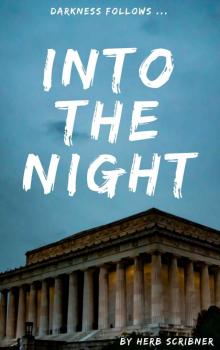 Into the Night
Into the Night The Secrets We Bury
The Secrets We Bury The Dark Woods (Winchester, Tn. Book 2)
The Dark Woods (Winchester, Tn. Book 2)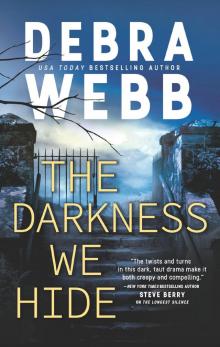 The Darkness We Hide
The Darkness We Hide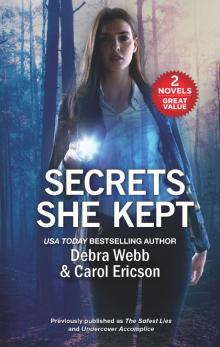 Secrets She Kept
Secrets She Kept Before He Vanished
Before He Vanished CARSON (Dark and Dangerous Romantic Suspense Book 3)
CARSON (Dark and Dangerous Romantic Suspense Book 3) In Self Defense
In Self Defense In Self Defense (Winchester, Tn. Book 1)
In Self Defense (Winchester, Tn. Book 1) Before He Vanished (Winchester, Tn. Book 6)
Before He Vanished (Winchester, Tn. Book 6)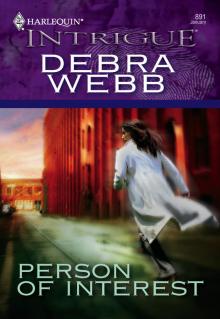 Person of Interest
Person of Interest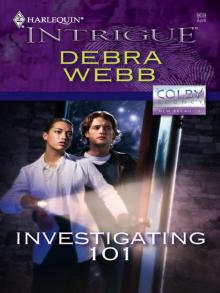 Investigating 101
Investigating 101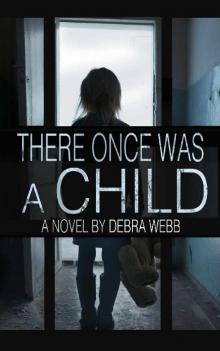 There Once Was A Child
There Once Was A Child Special Assignment: Baby
Special Assignment: Baby Protective Custody
Protective Custody Vows of Silence
Vows of Silence RYAN (Dark and Dangerous Romantic Suspense Book 2)
RYAN (Dark and Dangerous Romantic Suspense Book 2) Witness Protection Widow
Witness Protection Widow The Face of Evil
The Face of Evil Heinous (Faces of Evil)
Heinous (Faces of Evil)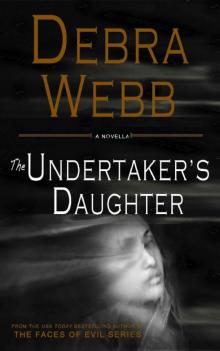 The Undertaker's Daughter
The Undertaker's Daughter![Faces of Evil [1] Obsession Read online](http://i1.bookreadfree.com/i/03/21/faces_of_evil_1_obsession_preview.jpg) Faces of Evil [1] Obsession
Faces of Evil [1] Obsession Justice
Justice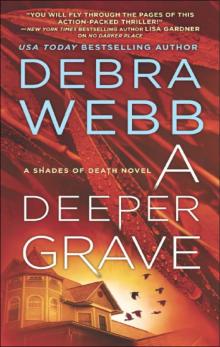 A Deeper Grave--A Thriller
A Deeper Grave--A Thriller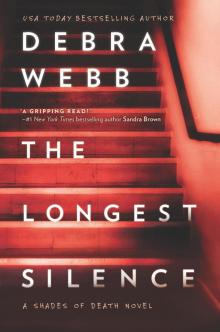 The Longest Silence
The Longest Silence Sin and Bone
Sin and Bone Vile: The Faces of Evil Series: Book 8
Vile: The Faces of Evil Series: Book 8 Urban Sensation
Urban Sensation Heavy Artillery Husband
Heavy Artillery Husband CA 50.5 Colby Agency Companion Guide
CA 50.5 Colby Agency Companion Guide Bone Deep
Bone Deep Decoded
Decoded Going to the Chapel
Going to the Chapel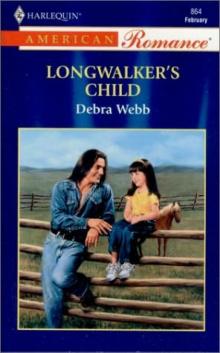 Longwalker's Child
Longwalker's Child no looking back (A Breakdown Series Short Read)
no looking back (A Breakdown Series Short Read) Secrets in Four Corners
Secrets in Four Corners the dead girl (BREAKDOWN Book 1)
the dead girl (BREAKDOWN Book 1) Still Waters
Still Waters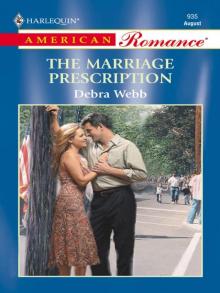 The Marriage Prescription
The Marriage Prescription CA 35 Christmas Past
CA 35 Christmas Past Executive Bodyguard (The Enforcers)
Executive Bodyguard (The Enforcers) Raw Talent
Raw Talent The Bride’s Secrets
The Bride’s Secrets The Hidden Heir
The Hidden Heir Colby Rebuilt
Colby Rebuilt Colby Velocity
Colby Velocity Colby Core
Colby Core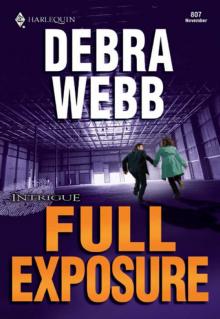 Full Exposure
Full Exposure Guardian of the Night
Guardian of the Night Missing
Missing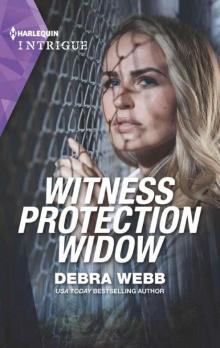 Witness Protection Widow (Winchester, Tn. Book 5)
Witness Protection Widow (Winchester, Tn. Book 5) Damaged
Damaged CA 46.5 Operation Second Honeymoon
CA 46.5 Operation Second Honeymoon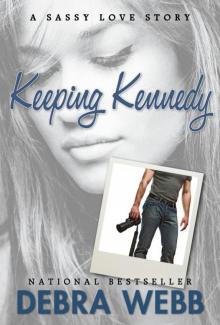 Keeping Kennedy
Keeping Kennedy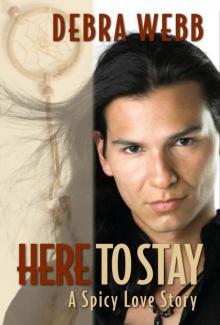 Here to Stay
Here to Stay Striking Distance
Striking Distance Physical Evidence
Physical Evidence Bridal Armor
Bridal Armor Revenge
Revenge Man of Her Dreams
Man of Her Dreams Finding the Edge
Finding the Edge Free Falling
Free Falling Gunning for the Groom
Gunning for the Groom Colby Brass
Colby Brass Safe by His Side
Safe by His Side Traceless
Traceless Find Me
Find Me WOULD-BE CHRISTMAS WEDDING
WOULD-BE CHRISTMAS WEDDING Everywhere She Turns
Everywhere She Turns Classified
Classified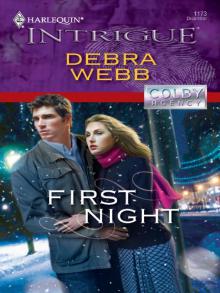 First Night
First Night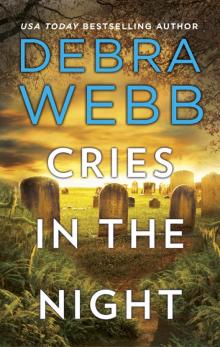 Cries in the Night
Cries in the Night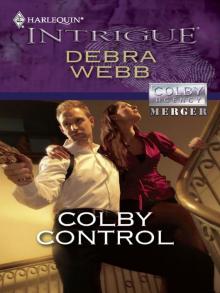 Colby Control
Colby Control Shadows of the Past
Shadows of the Past Colby Roundup: Colby RoundupColby Agency Companion Guide
Colby Roundup: Colby RoundupColby Agency Companion Guide Romancing the Tycoon
Romancing the Tycoon Dark Whispers
Dark Whispers Debra Webb - In His Touch Box Set (Here To Stay, Up Close, Tempting Trace, Basic Instincts)
Debra Webb - In His Touch Box Set (Here To Stay, Up Close, Tempting Trace, Basic Instincts) Past Sins
Past Sins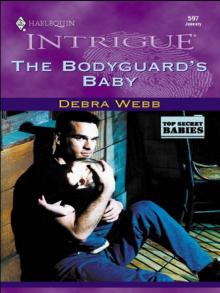 The Bodyguard’s Baby
The Bodyguard’s Baby SEE HIM DIE
SEE HIM DIE Solitary Soldier
Solitary Soldier![Faces of Evil [2] Impulse Read online](http://i1.bookreadfree.com/i2/04/04/faces_of_evil_2_impulse_preview.jpg) Faces of Evil [2] Impulse
Faces of Evil [2] Impulse Come Find Me
Come Find Me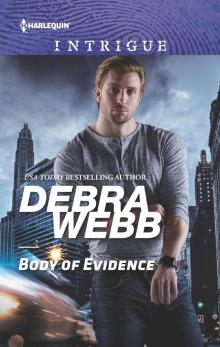 Body of Evidence
Body of Evidence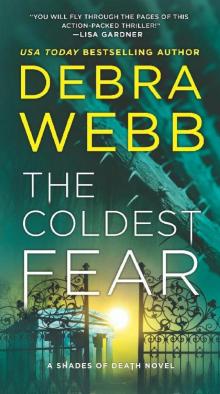 The Coldest Fear
The Coldest Fear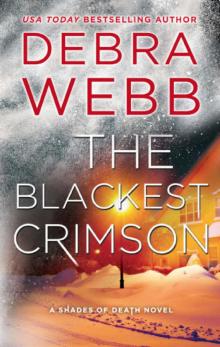 The Blackest Crimson
The Blackest Crimson The Hunk Next Door
The Hunk Next Door Against the Wall
Against the Wall Reluctant Hero
Reluctant Hero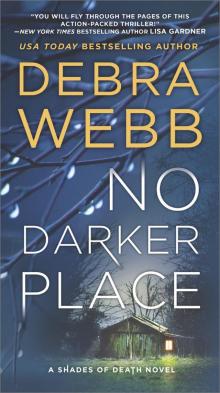 No Darker Place--A Thriller
No Darker Place--A Thriller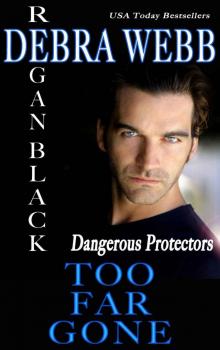 Too Far Gone
Too Far Gone High Noon
High Noon Personal Protector
Personal Protector Ruthless: The Faces of Evil Series: Book 6
Ruthless: The Faces of Evil Series: Book 6 Broken
Broken Faceless
Faceless Tremors
Tremors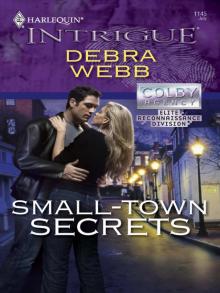 Small-Town Secrets
Small-Town Secrets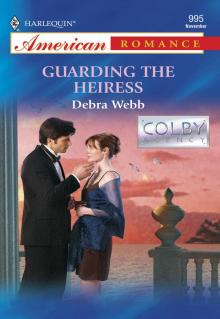 Guarding the Heiress
Guarding the Heiress SEE HER DIE
SEE HER DIE Dirty
Dirty Identity Unknown
Identity Unknown The Wedding: A Faces of Evil Short Story
The Wedding: A Faces of Evil Short Story CA 50.7 Little Girl Lost
CA 50.7 Little Girl Lost Ready, Aim...I Do!: Missing
Ready, Aim...I Do!: Missing What She Doesn't See
What She Doesn't See Her Undercover Defender
Her Undercover Defender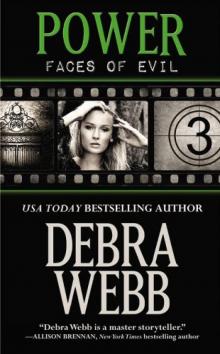 Power
Power Colby Law
Colby Law 037369945X (R)
037369945X (R) Never Happened
Never Happened The Back-Up Plan
The Back-Up Plan Past Sins (Silhouette Bombshell)
Past Sins (Silhouette Bombshell) Nameless
Nameless To Honor and To Protect
To Honor and To Protect Undercover Wife
Undercover Wife Taming GI Jane
Taming GI Jane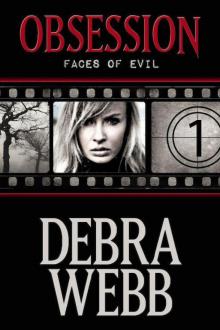 Obsession
Obsession Situation: Out of Control/Full Exposure
Situation: Out of Control/Full Exposure![Faces of Evil [4] Rage Read online](http://i1.bookreadfree.com/i2/04/12/faces_of_evil_4_rage_preview.jpg) Faces of Evil [4] Rage
Faces of Evil [4] Rage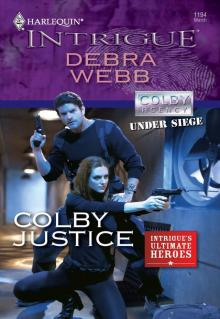 Colby Justice
Colby Justice